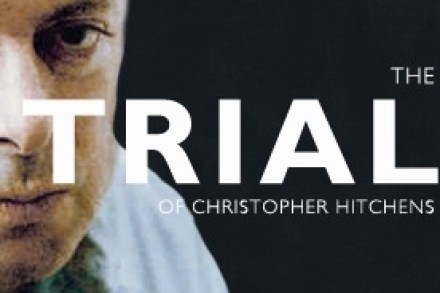Christopher Hitchens’s lefty publisher begged from him – and then betrayed him
Before the crash of 2007, as aid agencies were asking the governments of what we once called ‘the rich world’ to wipe out poor countries’ debts, Christopher Hitchens received a begging letter from his publishers. Verso, if you have never come across it, boasts that it is ‘the largest independent, radical publishing house in the English-speaking world’. Its old stagers are Tariq Ali and Perry Anderson, Marxist-Leninists of the upper class, who had been Hitchens’s comrades on the soixante-huitard left. Hitchens told me that along with aristocratic style of their fine offices in London and New York went the classic capitalist desire to expropriate the fruits of the workers’ labour.
















